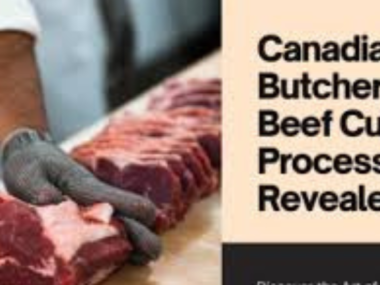Food preparation assistant roles are an excellent way for individuals looking to work in Australia on a temporary visa. Cafeterias and commercial kitchens around the country regularly have positions available for skilled food prep workers willing to relocate.
Background on food prep assistant jobs in Australia
Food preparation is a fundamental aspect of any cafeteria, cafe, or commercial kitchen operation. Assistants play a key supporting role in ensuring meals and snacks are produced efficiently and safely to meet business needs. Common daily responsibilities for these positions include:
- Chopping, slicing, dicing, and otherwise preparing fresh vegetables, fruits, proteins, and other ingredients.
- Weighing and measuring ingredients according to recipes or production sheets.
- Operating basic kitchen equipment like mixers, blenders, ovens, and stoves to produce meal components.
- Portioning and plating finished items attractively for service.
- Maintaining clean and sanitary work areas, equipment, and utensils.
- Following food safety protocols and temperature control procedures.
- Assisting with stocking, organizing storage areas, and rotating products.
While skills and experience are preferred, many employers are willing to train the right candidates. Ideal candidates possess basic culinary knife skills, an eye for detail, the ability to follow instructions accurately, and work efficiently in a fast-paced environment. A food handling certificate is also commonly expected and can be obtained after hiring.
Food prep roles in cafeterias provide stable employment, with shifts typically scheduled Monday through Friday during regular daytime business hours. Wages are set based on any relevant qualifications and experience, following minimum award rates. For 2022, the minimum hourly rate for a food prep or kitchen hand role in a commercial kitchen is $25.41 AUD. Overtime rates and other entitlements also apply under the relevant industry award.
Beyond good pay, these positions offer the opportunity to build practical job skills in a vocational field while gaining exposure to Australian workplace culture. For individuals new to the country, working as a food prep assistant can help them acclimate to life in Australia more generally. Employers providing visa support see it as a mutually beneficial working arrangement as well.
Visa options and sponsorship pathways
The most common visas suitable for food preparation assistant roles with employer sponsorship are the Temporary Skill Shortage (TSS) visa and Temporary Work (Skilled) visa (subclass 482). To qualify an individual for sponsorship, the job must meet specific criteria:
- Be a genuine full-time role at an Australian workplace.
- Involve duties and skills at the ANZSCO Skill Level 1-3. Food prep assistant duties typically match Skill Level 3.
- Pay the industry wage rate or higher as per the relevant award.
- Not replace an existing Australian worker.
- Not be a primarily administrative or unskilled role.
Employers must also demonstrate they are unable to find an appropriately skilled Australian citizen or permanent resident to fill the position after conducting adequate recruitment efforts. This helps protect local job opportunities while still allowing access to qualified overseas talent when needed.
Some key aspects of the Temporary Skill Shortage and Temporary Work visas:
- Initial visas are granted for up to 4 years, with optional further extensions possible.
- Visa holders can work only for the nominating employer in the approved job.
- Dependents like partners and children can also obtain accompanying visas.
- A pathway to permanent residence is not provided, but further visas can be applied for.
- Upfront and ongoing application fees apply for both employers and visa holders.
The process of obtaining sponsorship typically takes 3-6 months from applying through to a final decision. Employers handle all paperwork and costs during the nomination and visa process on behalf of candidates they wish to sponsor. This makes these roles especially appealing as they remove much of the complexity and financial burden from individuals.
Cafeterias and kitchens offering sponsorship positions
A wide range of cafeterias, hospitality groups, and commercial kitchens across Australia actively utilize skilled migration programs to fill food prep roles:
- Hospitals – Many large public hospitals employ culinary teams to produce meals for patients, staff, and visitors. Their sizable operations often have ongoing food prep vacancies.
- Aged care providers – Aged care facilities require substantial meal production to serve residents three healthy meals per day. Popular national chains commonly offer visa support roles.
- Education institutions – Universities, TAFEs and colleges maintain commercial kitchens to feed large student populations each day. They look for hardworking assistants.
- QSR and hospitality groups – Well-known quick-service restaurant franchises and catering companies sponsor prep hands across their national networks.
- Stadiums and event venues – Sports arenas and entertainment complexes need food production staff to serve crowds. Busy seasons keep roles available.
- Manufacturing facilities – Some industrial bakeries and food production plants have on-site cafeterias with daily prep needs.
The best approach is to search the career pages and websites of major organizations within these industries. Many openly advertise their willingness to sponsor the right candidates for food prep assistant or kitchen hand roles. It helps to have basic qualifications and 1-2 years prior experience to qualify for nomination. Employers are spread across capital cities and regional areas nationwide.
Qualifying and applying for roles
For individuals seeking an opportunity, the process involves qualifying for roles through research and applications and then being selected by an employer willing to sponsor a visa. Some key steps:
- Research companies actively sponsor candidates, as discussed above. Focus applications only on legitimate businesses verified online.
- Assemble relevant documents – resume, certificates, reference letters, passport. Have English language test results ready if required for the specific visa pathway.
- Apply for roles through company career pages, expressing clear interest in relocating to Australia in a sponsored capacity.
- During the screening, emphasize transferable skills from education or prior roles that match position requirements.
- If proceeding to the interview, present well-rounded experience and commitment to succeed through hard work.
- Express appreciation for sponsorship support and willingness to adhere to visa conditions.
- Should an offer be extended, provide all requested identity and background check documents in a timely manner.
- Maintain contact with employers as they progress nomination and visa applications on their behalf.
- On approval, make arrangements to relocate as required once a visa grant notice is received.
- Have a plan B in place, as sponsorship cannot be guaranteed, but keep options open if accepted by the right company. Many applicants may be competing.
With dedication to the application process, qualifying candidates stand a reasonable chance of securing a sponsored food prep role and accompanying visa to work in Australia’s thriving cafeteria industry. The stable jobs and new experiences available make it a worthwhile opportunity worth pursuing for eligible individuals abroad.
Adjusting to work and life in Australia
Relocating to a new country presents challenges no matter how prepared one tries to be. For those accepting sponsored food prep positions in Australia, a few key adjustment considerations include:
- Learning about workplace culture norms and communication styles different than back home. Be respectful, observe others in similar roles.
- Adapting to the demanding pace and multi-tasking environment of commercial food production environments. Stamina and focus will be tested.
- Following all safety, sanitation, and HACCP food handling procedures meticulously. Non-compliance can jeopardize the visa and employment.
- Improving culinary knife skills and developing new recipes or ingredient knowledge over time through on-the-job training.
- Settling into living arrangements, whether sharing accommodation, renting a property, or having dependents join. Budget challenges may arise.
- Navigating visa and entitlement obligations independently, like maintaining health insurance as required on certain visas.
- Developing an understanding of Australian cultural values, laws, and systems that differ from one’s home country background.
- Building a social network from other migrants or local community groups to stave off feelings of isolation at times.
- Managing any impacts of seasonal weather changes, especially heat or humidity, depending on regions of assignment.
- Making the work-life balance a priority through weekends and time off for leisure activities or travel around Australia.
With resilience and community support, adjusting to sponsored employment roles and new surroundings becomes increasingly comfortable over the initial settling-in period. Approaching challenges pragmatically and maintaining a positive mindset helps facilitate adaptation.
Long-term career and life opportunities
While the initial visas only provide short to medium-term status in Australia, sponsored food prep positions can potentially lead to expanded opportunities further down the line:
- Transitioning to other roles within the sponsoring employer, such as chef, cook, or kitchen supervisor with experience and credentials gained.
- Applying to extend existing visas indefinitely or for additional durations through demonstrated value to the company.
- Qualifying for further employer-sponsored visas or independent skilled migration visas if career aspirations outgrow original position over time.
- Starting one’s own small business, such as an ethnic food stall or catering venture, after time spent familiarizing with both the industry and Australian systems.
- Pursuing permanent residency through alternative pathways like Regional or Business Talent visas after sufficient time working and living in specific regional areas or as an essential business employee.
- Earning higher salaries and career mobility that come with senior culinary roles and management experience at Australian workplaces.
- Enjoying rights to Medicare coverage, superannuation, annual leave, and long service leave as applicable under Australian employment law over the course of a longer-term career.
- Spending retirement years in Australia access social security benefits after paying sufficient tax as a long term resident, if choosing to settle permanently.
- Gaining global life experiences living abroad, learning a new culture, travel opportunities, and creating a new home for oneself and family in a prosperous country like Australia.
Overall, food preparation assistant positions provide a start for dedicated individuals seeking work and new horizons. With effort, suitable candidates can parlay initial sponsored roles into indefinite futures down under.
APPLY HERE
If you meet the requirements and would like to pursue an opportunity as a sponsored food prep assistant in Australia, start your application process by exploring open roles listed on the sites below of major industry employers:
Ready to Take the Next Step? Click the Apply Now button below to start your application. This is your chance to move to Australia!
When applying, be sure to highlight your eligibility and enthusiasm for relocation to Australia through an employer sponsorship program. Maintain regular contact should any role proceed to the interview stages.




2 comments